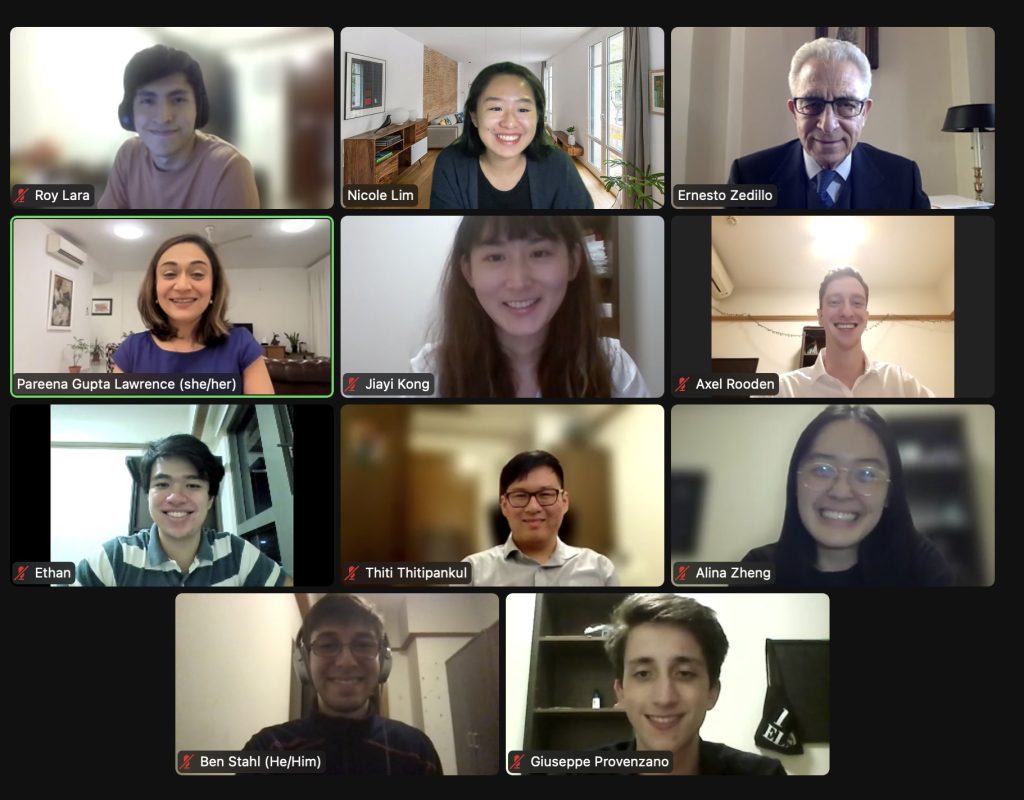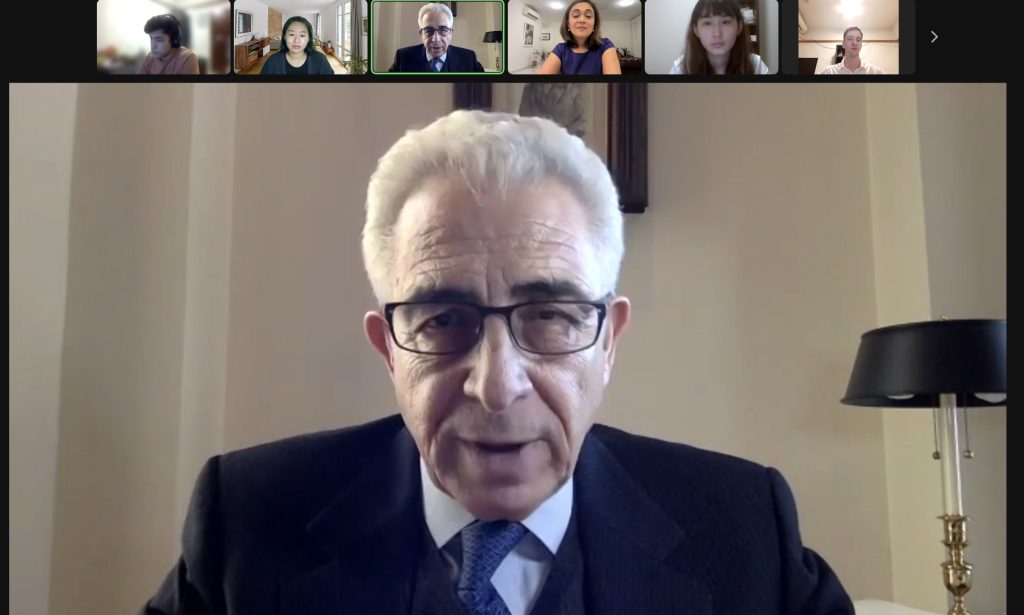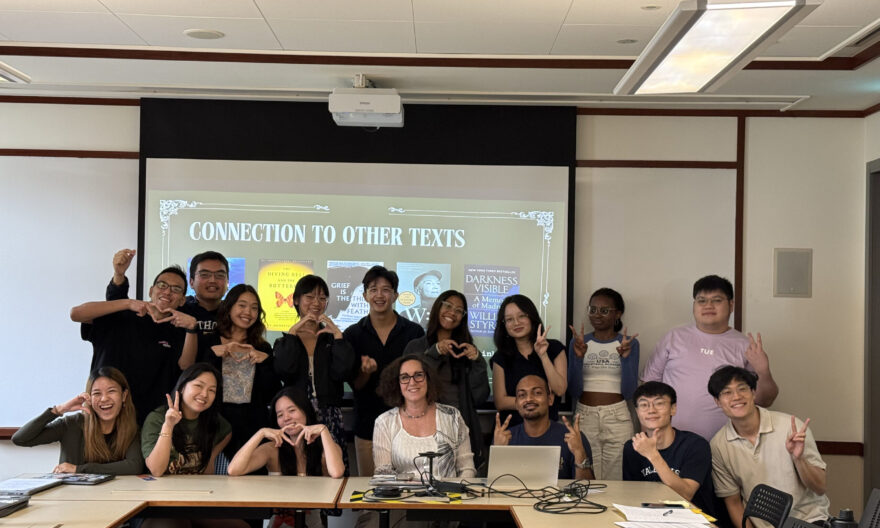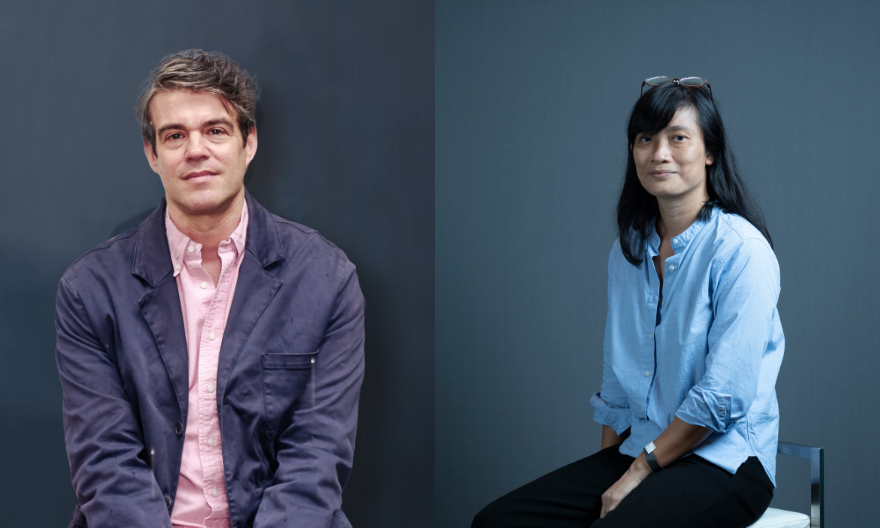Former President of Mexico, Ernesto Zedillo drops in on a Yale-NUS economics class
Students in the Development Economics module learn from world leader and economist
This semester, Yale-NUS College students in the Development Economics course were privileged to learn from former President of Mexico and Yale Professor Ernesto Zedillo, who was invited to speak to the class.
The course, Development Economics – taught by Visiting Professor of Social Sciences (Economics) Pareena Lawrence – aims to help students better understand the process and challenges of economic development across countries as they examine key issues such as poverty, inequality, unemployment, and migration among others.
Prof Lawrence is also a Senior Fellow at Yale University in the Office of International Affairs. It was at Yale where she met Prof Zedillo, who is known for his pioneering programme on conditional cash transfers (CCT) in Mexico called PROGRESA (Programa de Educacion, Salud y Alimentacion) that was designed to incentivise investment in the education and health of children and their families to break the cycle of poverty and has been adopted by several other nations.
Seeing the natural connection between her course objectives and Prof Zedillo’s expertise in the area of development economics, Prof Lawrence reached out to Prof Zedillo to invite him to share his knowledge with Yale-NUS students via a dialogue session.
 Students from the Development Economics course engaging in a lively dialogue with Prof Zedillo, held via Zoom.
Students from the Development Economics course engaging in a lively dialogue with Prof Zedillo, held via Zoom.
 Prof Zedillo responding to questions from students. Images provided by Nicole Lim.
Prof Zedillo responding to questions from students. Images provided by Nicole Lim.
The dialogue session with Prof Zedillo delved into his specific experiences as President of Mexico (1994 to 2000) during a severe economic crisis and policy interventions that eventually helped facilitate the gradual improvement of the Mexican economy, explained Professor Lawrence.
At the session, students asked pertinent questions about the policies implemented during his time as president, like PROGRESA, implemented by the Mexican government in 1997, which later served as a model for several other countries. The class had previously analysed case studies related to PROGRESA and discussed the “preconditions, target groups, programme design and challenges” in class, shared Jiayi Kong (Class of 2022). She found that the conversation with Prof Zedillo has helped her gain a deeper understanding and new perspectives of the policies as she got to learn about the thought-process behind the policy.
“As President, Prof Zedillo focused not only on immediate issues like funding shortfalls but also on longer-term issues such as education, gender inequality, and health,” said Jiayi. Hearing from Prof Zedillo directly, it was clear he was “determined to fight poverty and improve the health and education conditions of the poorest people” through his policy and advocacy.
Fellow student, Nicole Lim (Class of 2024) echoed similar sentiments. Such “real-life experience brings the theories to life,” she said.
Her experience with the course revealed “how interconnected social, political and economic challenges are in thinking about how to build a developing economy” and this conversation reiterates the importance of interdisciplinary solutions. Similar to Jiayi, Nicole was inspired by the PROGRESA policy and the level of rigour in research and design of social and socioeconomic policies before implementation.
Alina Zheng (Class of 2023), an exchange student from Wellesley College, found the opportunity to speak with Prof Zedillo “a once-in-a-lifetime experience.” She added that “it was so cool to have the opportunity to speak to a real-life policymaker who implemented real change instead of simply reading from a textbook.”
The opportunity to learn from a country leader and renowned economist was very much appreciated by the rest of the class, who participated actively and enthusiastically in the session.
As Prof Lawrence summed it up, “I hope that students better understand the complexities of development problems and the trade-offs leaders face. How doing the “right thing” is often viewed through the lens of one’s beliefs, worldview, and history. Yet, as manifested through public policy, courageous leadership is about making difficult decisions for the long-term well-being of your people and the nation, even if it costs you the popular vote.”




